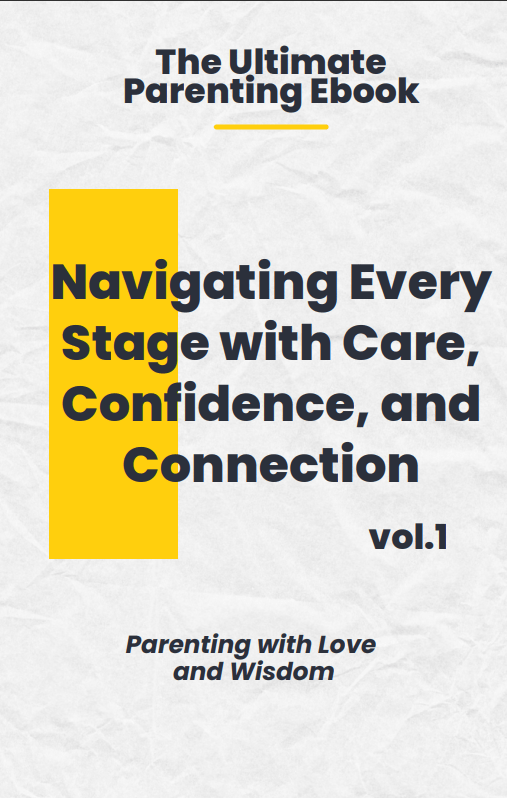Handle your teen’s anger with proven Teenage Anger Management Tips. Learn what triggers their outbursts and how to effectively calm their frustrations. Read here.

Dealing with a teenager who seems to have uncontrollable anger can feel overwhelming. When your teen is stubborn, misbehaves, and consistently crosses all limits, typical methods like grounding or taking away privileges don’t always work. At this point, you need to dig deeper and adopt more strategic approaches.
In this blog, we’ll explore both the reasons behind extreme teenage anger and, more importantly, effective teenage anger management tips to help you regain control of the situation and foster healthier behaviors.
In This Blog
ToggleSection 1: Reasons Behind Teenage Anger
It’s critical to understand what may be fueling your teen’s anger. Sometimes, the issue goes beyond just typical teenage defiance. Here’s what might be happening beneath the surface:
1. Psychological and Emotional Factors
Teenagers experience an array of emotional and psychological changes during adolescence. Hormonal shifts can heighten emotions, making it harder for teens to manage their anger. It’s important to recognize that their brains are still developing, particularly the prefrontal cortex, which controls impulse control and decision-making.
Additionally, mental health concerns like depression or anxiety can exacerbate anger. If your teen is struggling with underlying mental health issues, anger may be their way of expressing emotional pain. This doesn’t mean they’re just being difficult—there could be real emotional turmoil driving their outbursts.
2. Parental Behaviors That Trigger Anger
As parents, we often try to correct misbehavior through punishment or criticism, but sometimes our own actions unintentionally fuel that anger.
Overly harsh discipline can lead to resentment. Constant punishment without addressing the root cause of their behavior can push a teen to act out even more.
Criticism and belittling, whether intentional or not, can deeply damage a teen’s self-esteem. Being overly critical or humiliating them, especially in front of others, can make them feel inadequate, which often translates into rage.
Emotional absence or disconnection is another key factor. Teenagers need emotional support and understanding. If they feel you’re too distant or not involved in their lives, they may lash out because they feel alone or misunderstood.
3. Triggers of Anger Explosions
Teens are highly reactive to certain situations, and understanding these triggers can help them manage their anger better. Some common triggers include:
Parental over-correction: Micromanaging their life can make them feel suffocated, leading to intense rebellion.
Inconsistency in rules: If you’re not consistent with enforcing boundaries, it leaves your teen confused, and they may act out as a way of testing limits.
Peer influence and social media pressures: Negative peer pressure and constant comparison on social media can heighten feelings of inadequacy, frustration, and anger.
Section 2: Practical Solutions for Managing Teenage Anger
Now that we understand why teens might be angry, let’s dive into the solutions. The following teenage anger management tips are designed to help parents regain control, foster better communication, and address the root causes of misbehavior.

1. Teaching Emotional Regulation
One of the most effective teenage anger management tips is teaching your teen how to regulate their emotions.
Mindfulness and Deep Breathing: Introduce simple breathing techniques or mindfulness exercises to help your teen calm down during moments of anger. These techniques are practical, and effective, and can be implemented in stressful situations.
Journaling Emotions: Encourage your teen to express their feelings through writing. Journaling helps them process their emotions and reflect on what triggers their anger. It’s an excellent tool for self-awareness and self-regulation.
Physical Activity as a Release: Physical outlets like running, swimming, or even boxing can be excellent ways for teens to burn off excess energy and frustration. Encourage regular physical activity, as it significantly reduces stress and helps manage anger.
2. Setting Boundaries and Offering Structure
Teens thrive in environments where they know what’s expected of them. Establishing clear boundaries is critical for managing their behavior.
Consistent Rules and Consequences: Be clear about your household rules and enforce them consistently. Inconsistency only leads to confusion and manipulation, causing teens to push the limits even further.
Natural Consequences: Instead of punishing your teen harshly, focus on natural consequences. For example, if they break something out of anger, they should be responsible for repairing or replacing it. This connects the consequences directly to their actions and helps them understand the impact of their behavior.
Setting Reasonable Expectations: Don’t overwhelm your teen with impossible standards. Set realistic, achievable goals. This reduces pressure and helps them feel more in control of their emotions.
3. Improving Communication with Your Teen
Communication is key when it comes to managing a stubborn teen’s anger. Here are a few teenage anger management tips for fostering better dialogue:
Active Listening: Let your teen speak and express their frustrations without interrupting. Often, teens just want to be heard, and showing that you’re genuinely listening can help de-escalate anger.
Using ‘I’ Statements: Instead of accusing your teen by saying, “You never listen,” frame the conversation with “I” statements like, “I feel frustrated when I’m ignored.” This approach lowers defensiveness and opens the door to a healthier dialogue.
Family Meetings and Check-Ins: Schedule regular check-ins or family meetings where everyone can express their thoughts and feelings. This creates a safe space for communication and helps address issues before they spiral into anger.
4. Modeling Healthy Behavior
Teens mimic the behavior they see at home. If you want to help your teen manage their anger, it’s essential that you model calm and controlled behavior yourself.
Controlling Your Own Anger: If you respond to their outbursts with anger, it will only escalate the situation. Stay calm, and show them what healthy anger management looks like.
Balancing Authority with Empathy: While you need to maintain authority, showing empathy is critical. Let your teen know you understand their frustrations, and that you’re there to support them as they navigate their emotions.
5. Positive Reinforcement and Rewards
One of the most effective teenage anger management tips is to focus on reinforcing positive behavior rather than solely punishing negative actions.
Acknowledging Good Behavior: Celebrate your teen’s efforts when they manage their anger well. Positive reinforcement can be much more effective than constant punishment.
Creating a Reward System: Set up a reward system for positive behavior. For example, if they consistently manage their anger without outbursts, they could earn extra privileges like more screen time or outings with friends.
6. Self-Care and Support for Parents
Parenting an angry, stubborn teen can be emotionally exhausting. You must take care of yourself, too.
Managing Your Own Stress: Practice self-care and seek support from friends, family, or professionals when needed. Your emotional well-being directly impacts how well you can handle your teen’s behavior.
Seeking Professional Help: If your teen’s anger is persistent and extreme, it may be time to seek professional guidance. A therapist can provide additional strategies and coping mechanisms tailored to your teen’s specific needs.
7. Encouraging Healthy Coping Mechanisms
Teens need outlets for their emotions. Encourage them to engage in activities that promote emotional release and personal growth.
Creative Expression: Introduce activities like drawing, painting, or music to help your teen channel their emotions creatively. This gives them a productive outlet for their anger.
Problem-Solving Skills: Help your teen develop problem-solving skills by identifying triggers and working through potential solutions. Engaging in role-playing scenarios is a useful method to help practice and refine these skills.
Peer Support Groups: Encourage your teen to participate in support groups with other teens who may be experiencing similar challenges. These groups provide peer interaction and often make teens feel less isolated in their struggles.
Conclusion
Managing teenage anger, especially in a stubborn and misbehaved teen, is a challenging task. But with the right strategies, like those outlined here, you can make a significant difference. These teenage anger management tips offer a practical, empathetic, and structured approach to improving your relationship with your teen and helping them manage their emotions more effectively.

Have you faced challenges managing your teen’s anger? What strategies have worked for you? Feel free to share your thoughts, advice, or any questions you may have in the comments below. We’d love to hear from you!
You may also be interested in : Online Therapy for Teens: 2024 Top Therapy Apps Every Parent Should Know
FAQs
1. What causes extreme anger in teenagers?
Teenagers often experience extreme anger due to hormonal changes, peer pressure, academic stress, and difficulties with emotional regulation. Factors such as mental health issues, lack of parental connection, or overly harsh discipline can also contribute. Understanding the root causes is essential in helping them manage their emotions effectively.
2. How can I help my teenager manage their anger?
Teach emotional regulation techniques such as deep breathing, mindfulness, and journaling. Encourage physical activities, set consistent boundaries, and communicate openly. Modeling calm behavior and showing empathy are crucial strategies for managing your teen’s anger constructively.
3. Why does my teenager react angrily to minor things?
Teens often overreact due to their emotional development stage, where they struggle to control impulses. Hormonal shifts, stress from school or social situations, and unaddressed frustrations may make small issues seem larger, leading to intense anger outbursts.
4. Can mental health issues cause teenage anger?
Yes, mental health issues such as depression, anxiety, or ADHD can contribute to heightened anger in teens. These issues often make it difficult for them to regulate emotions, making professional help important if the anger persists.
5. How do I set boundaries without making my teenager angrier?
Set clear, consistent rules and consequences, but do so with empathy. Involve your teen in creating the rules so they feel a sense of ownership. Make sure the consequences are fair, directly related to their actions, and that you maintain calm when enforcing them.
6. What should I do if my teenager refuses to talk about their anger?
If your teen avoids discussing their anger, give them space but remain open to communication. Encourage them to express their emotions through writing, art, or physical activity. Make sure they know you’re available to talk when they’re ready and avoid forcing discussions, which can worsen their resistance.
7. Is harsh punishment effective in managing teenage anger?
Harsh punishments typically exacerbate anger and lead to more defiance. Instead, focus on natural consequences and positive reinforcement. Encouraging responsible behavior while maintaining a calm, empathetic approach fosters better emotional control in teens.
8. How do I handle a stubborn teenager who refuses to calm down?
Stay calm, avoid escalating the situation, and give your teen time to cool off. Encourage them to practice calming techniques like deep breathing or walking away from the moment. Once they’ve calmed down, initiate a conversation to understand the root of their anger.
9. What role does parental behavior play in teenage anger?
Parental behavior, such as being overly critical, emotionally absent, or inconsistent with discipline, can trigger or worsen teenage anger. Establishing a healthy connection, actively listening, and providing support can help manage their anger more effectively.
10. When should I seek professional help for my teenager’s anger issues?
Seek professional help if your teenager’s anger is persistent, leads to violence, or affects their daily life and relationships. Therapy can help uncover underlying emotional or mental health issues and provide both you and your teen with practical coping strategies.




